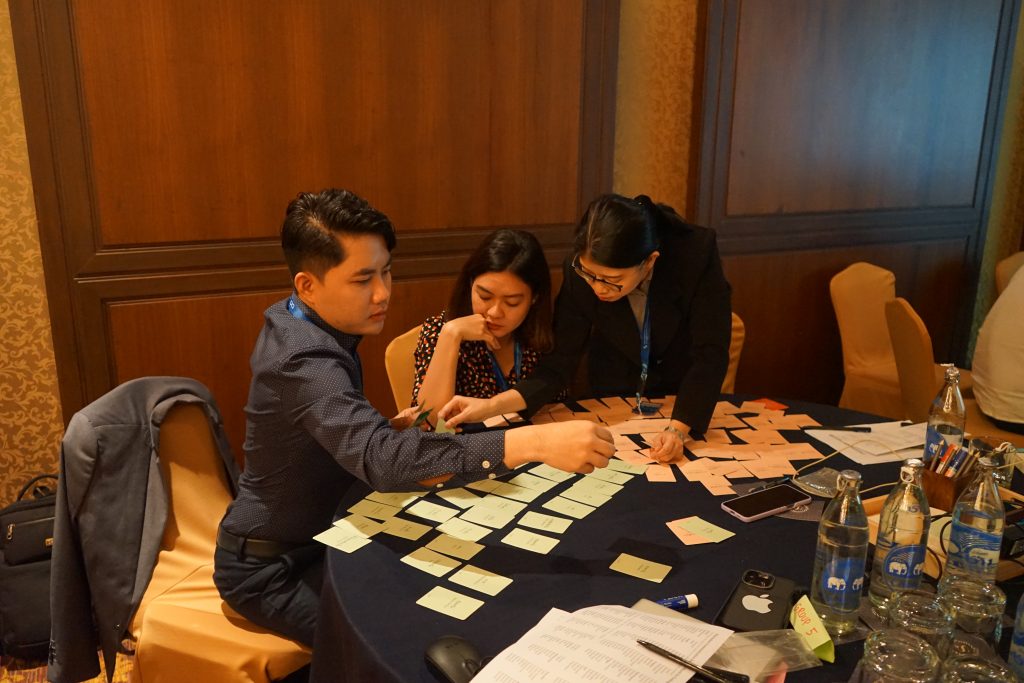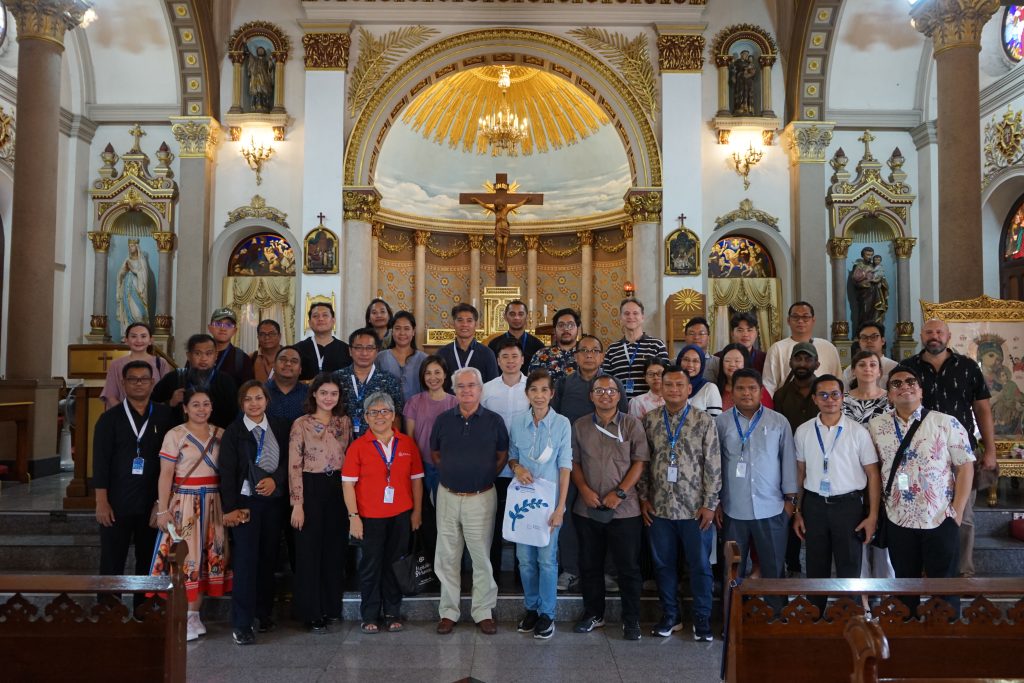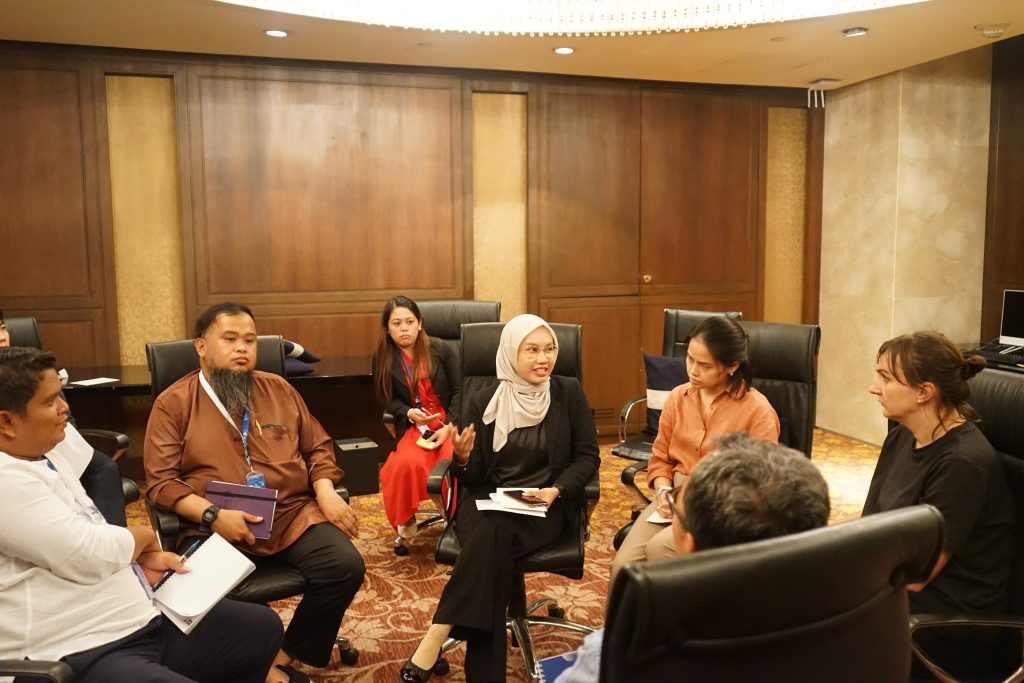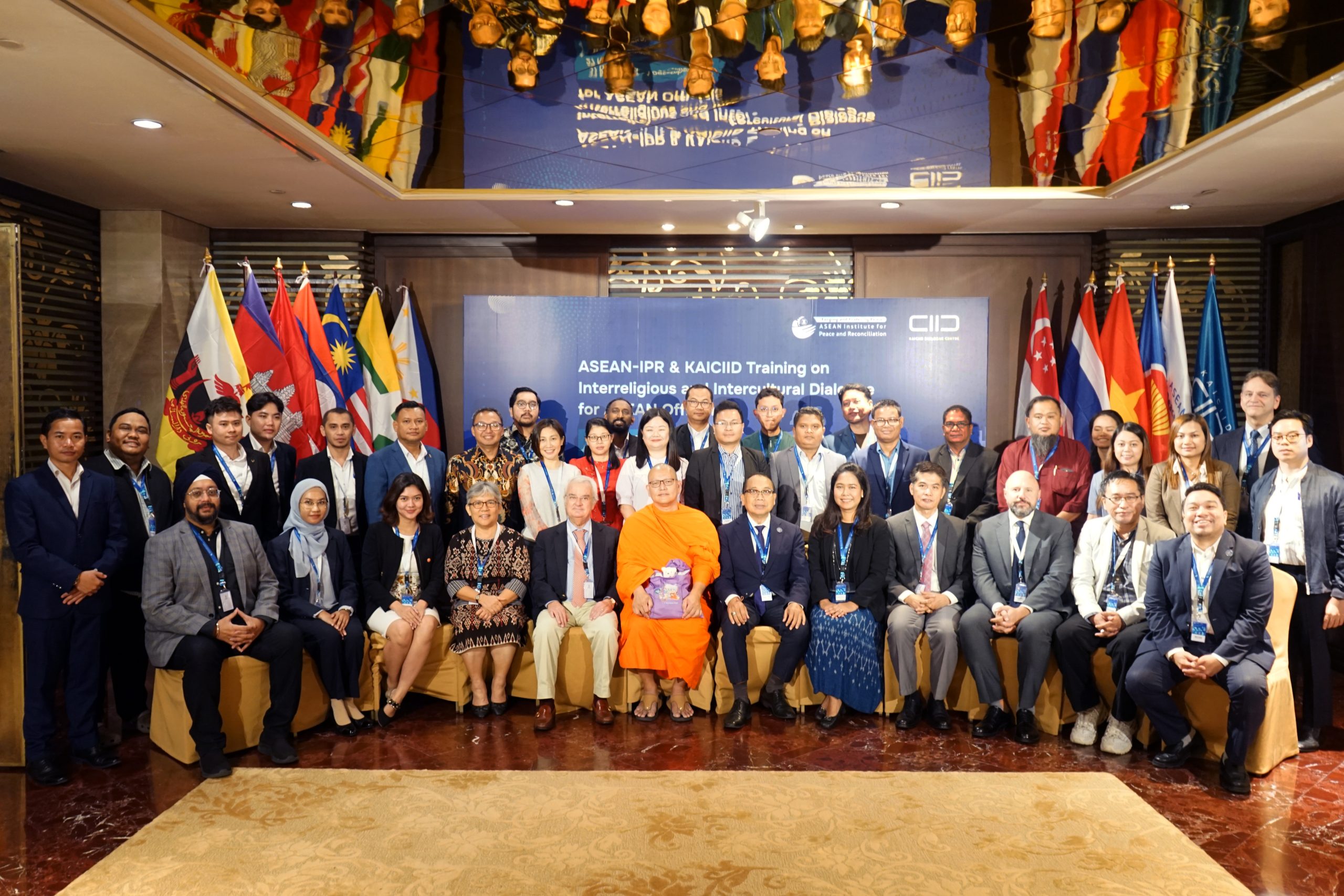JOINT ASEAN-IPR & KAICIID NEWS RELEASE – ASEAN-IPR & KAICIID TRAINING ON INTERRELIGIOUS & INTERCULTURAL DIALOGUE FOR ASEAN OFFICIALS
27 November-1 December 2023
Bangkok, Thailand
Twenty-six participants from ASEAN Member States, Timor-Leste and ASEAN Secretariat participated in the pilot Training of Interreligious and Intercultural Dialogue for ASEAN Officials, co-organised by the ASEAN Institute for Peace & Reconciliation (ASEAN-IPR) and the International Dialogue Centre – KAICIID, between 27 November-1 December 2023 in Bangkok, Thailand.
Aside from the diversity of their gender, nationalities and religious beliefs, participants came from differing backgrounds of work – including Ministry of Foreign Affairs; Ministry of Culture; Ministry of Religious Affairs; Presidential Office on Peace, Reconciliation & Unity; National Security Council Office; etc.
“We are here to foster a culture of peace, embracing the rich tapestry of diversity, tolerance and mutual understanding that underpins faith, religion and culture,” said Amb. Antonio de Almeida-Ribeiro, Deputy Secretary General of the International Dialogue Centre – KAICIID during his opening remarks on behalf of the Centre’s Secretary General, Dr Zuhair Alharthi. He further highlighted that “at KAICIID, we firmly believe that interreligious and intercultural dialogue, when skilfully facilitated, becomes a powerful catalyst for building trust, respecting diversity, and forging meaningful partnerships. The essence of each dialogue is its unique context, which shapes its impact and reach.”
The Training was a follow-up of an Online Training Session on Interreligious Dialogue for ASEAN Officials, at the proposition of KAICIID, pursuant to ASEAN-IPR’s capacity building functions – namely to hold training in promoting the voice of moderation, as well as to advance work in the area of interfaith dialogue. As a key takeaway from the Online Sessions back in 2021 was the need to tailor the source material to Southeast Asian context – thus the current Training was based on a newly-developed Training Syllabus & Modules, based on KAICIID’s existing source material, that is envisioned to be part of ASEAN-IPR’s roster of regular Trainings.
Thus, the Training itself had the objective to – among others – (i) bridge the gap between policymakers and local communities/religious leaders, by spreading awareness and knowledge over interreligious dialogue (IRD) and intercultural dialogue (ICD) as means to promote between communities of different religious and cultural backgrounds; and, (ii) to encourage/equip policymakers with the necessary cultural and religious understanding in order to enable them to create holistic policies that address political and social issues in ASEAN Member States.
In his Opening Remarks, Mr. I Gusti Agung Wesaka Puja, Executive Director of ASEAN-IPR, acknowledged that Southeast Asia is region that is home to some of the most religiously and culturally diverse countries in the world. Thus, possibility of inter-community tensions within the region cannot be overlooked. He therefore underlined that it is imperative to bring discussions to the Training as a forum on how IRD and ICD can be means for conflict prevention and resolution, as well as for peaceful coexistence; and how moderation can curb extremism by choosing mutual respect and inclusivity while strengthening the bonds between different communities and faiths.
The Syllabus & Modules were developed by a Team of Experts from ASEAN Member States and KAICIID, with various representation of faiths/beliefs. Led by Dr. Suphatmet Yunyasit (Lead Expert, Member of ASEAN Women for Peace Registry, Thailand), the Team of Experts/Trainers included Rev. Elga J. Sarapung (Indonesia), Ridwan, Ph.D. (Indonesia), Prof. Pablito Baybado (Philippines), Mr. Malminderjit Singh (Singapore), Prof. Patrice Brodeur (KAICIID) & Rev. Mike Waltner (KAICIID).

Throughout the five-day Training, participants were provided with history, theories and methods of dialogue – including sharing of each other countries’ experiences on interreligious and/or intercultural dialogue; introduction to dialogue skills-set and various forms of dialogue – including non-violent communication, fishbowl dialogue, open space dialogue, dialogue zones, as well as how to assess outcome of dialogues; frameworks of conflict analysis, conflict transformation and strategic peacebuilding framework – including best practices on engaging multi-religious/cultural leaders and communities. Participants also have one-full day visiting Kudi Khao-Kudi Chin Community of Klongsan, Bangkok – where they visited Bang Luang Mosque, Wat Kanlayanamit (Buddhist Temple), Kien Un Keng Shrine (Confucianism Temple) and the Santa Cruz Church.

“The Training provided a wide range of cultural and religious perspectives, as the Trainers/Experts are from different countries that have a variety of professional sectors – including foreign services, universities, religious communities, and non-governmental organisations,” said Ms. Hy Chanreaksmey, Desk Official of ASEAN Political-Security Community, Ministry of Foreign Affairs & International Cooperation of Cambodia. As the only participant who also experienced the Online Sessions back in 2021, Mr. Winn Thura, Officer at the Union Minister’s Office, Ministry of Religious Affairs and Culture of Myanmar, recognised the in-person Training to be more dynamic, as it provides an array of different activities in terms of exchanging views between participants.
As a participant from the host country, Mr. Kanisorn Bangyiekhan, Plan and Policy Analyst, Security of Southern Border Provinces and Ethnic Affairs Division, Office of the National Security Council of Thailand, “… envision the future of ASEAN as a community that emphasised how to smartly utilise its abundant resources and address conflict issues in an efficient, and balanced manner. Dialogue is not the absence of conflict, but the ability to resolve conflicts through peaceful practices.”
Ms. Carol Ho Foon Yee, Assistant Director, Engagement Branch, Community Relations and Engagement Division (CRED), Ministry of Culture, Community and Youth of Singapore, remarked “it has been a privilege to join fellow ASEAN Member States in learning relevant skills to navigate race and religion complexities in the region. The heartfelt conversations and unreserved sharing on how various dialogue initiatives which can be used to tackle real world challenges were particularly insightful and engaging.” As Project Development Officer at the Office of the Presidential Adviser on Peace, Reconciliation and Unity (OPAPRU), Mr. Ian Karlo A. Olegario, viewed that “this highly relevant training on IRD and ICD is also a great addition to the efforts of OPAPRU to constantly push for the promotion, adoption and institutionalisation of the Human Fraternity Document across all key sectors of the society, as well as in enhancing community resilience for peace and providing a proactive approach to counter various forms of mobilisation from violent extremist groups, especially among vulnerable communities and individuals.”

At the close of the Training, the Deputy Secretary General of KAICIID underscored that a common endeavour and/or belief for every faith is peace. He expressed hope that the five-day Training is useful for participants’ future activities as officials in their respective countries.
The Training was convened around the time where Thailand held its annual Loy Krathong Festival, thus participants also immersed themselves in the Thai culture of creating a Krathong and releasing their Krathongs into the Chao Phraya River.
For more information about ASEAN-IPR and KAICIID, please visit our respective websites (www.asean-aipr.org, www.kaiciid.org) and follow us on social media platforms.

